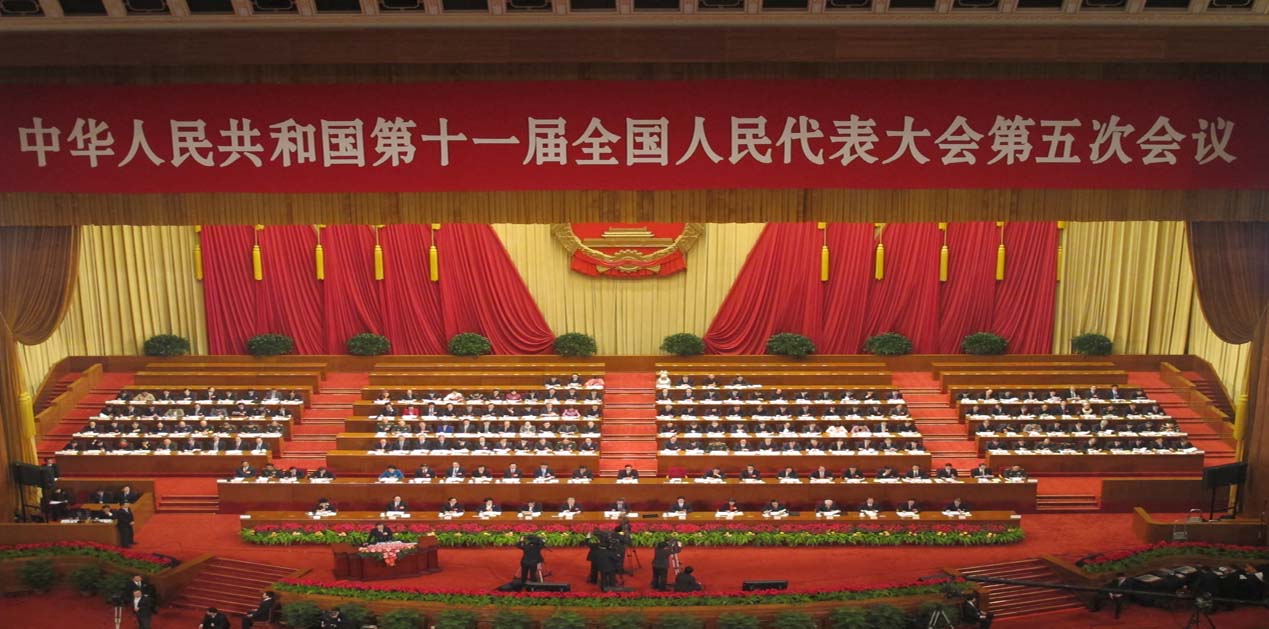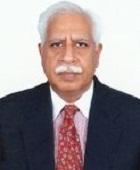The upcoming 19th Congress of the nearly 88-million strong Chinese Communist Party (CCP) is important not only for Xi Jinping and China, but potentially for China’s neighbours and the world. It will consolidate the course on which China is set.
The standard preparations for the 19th Congress have been underway since last year. 2300 delegates representing the CCP’s 88 million members divided into 40 blocs representing workers, farmers, peasants, soldiers, women, entrepreneurs etc. will be elected by June 2017. The CCP Central Committee (CC)’s General Office and groups in the CCP CC including veteran cadres, who though retired remain very influential, are finalising drafts of the report to be read by Xi Jinping. There are indications that the Party Constitution is likely to be amended and a major inclusion will probably be Xi Jinping’s speeches and instructions as ‘Xi Jinping Thought’ or ‘Xi Jinping Theory’. In July 2014 the authoritative Party theoretical journal ‘Qiu Shi’ (Seeking Truth) had called Xi Jinping as “one of China’s greatest communist leaders” who had put forward “new thinking, new views and new conclusions”. More recently the Head of the CCP CC General Office Liu Zhanshu stated in an internal address given in February and published on the social media account of the People’s Daily ’s overseas edition on April 30, 2017, that Xi Jinping’s key speeches formed a “complete theoretical system”. He said “They cover all aspects of reform and stability, domestic and diplomatic affairs, military operations and party rule.” No other CCP Chief has gained such stature yet!
Whether the People’s Liberation Army (PLA) will retain its strength in the 19th Congress and the CC it elects is unclear. The PLA is being streamlined and reduced in size which means that the number of full and alternate members that it has in the CC could drop. The 7 Military Regions have since been replaced by 5 Theatre Commands. Also pertinent is that since last year Xi Jinping has pushed a trend for professionalising the PLA and quietly ‘pushing it back into the barracks’ as it were. Official reports last year publicised that 86 PLA officers of the rank of Major General and above had been dismissed for corruption. China’s official news agency ‘Xinhua’ on March 27, 2017, stated that a total of 4,885 military officials were punished for disciplinary offenses in 2016. It quoted a PLA Daily commentary which called for strict scrutiny in personnel work and especially in the promotion and selection of military cadres. It asserted that "Malpractice, including spreading political rumours, reckless comments on the Party's theories and policies, and participation of illegal associations should all be prohibited and punished" and urged servicemen not to be distracted, and concentrate on building a strong military and maintaining a high degree of focus in combat training. The number of provinces which now have a PLA representative in their Provincial Party Standing Committee has drastically reduced. While Xi Jinping may not advocate a reduction in PLA representation at this Congress it is something that will happen definitely by the 20th Congress.
Like at the last Congress when in a departure from past practice appointments at senior levels of the PLA and Central Military Commission (CMC) were filled before the Congress, it seems that this could be the case this time too. The PLA Navy Commander and the Commander of the Southern Theatre – for the first time ever a PLA Navy officer – were appointed this January. Reports have been in circulation since early last year that decisions have already been taken regarding the next PLA Air Force (PLAAF) Commander and some other appointments.
The 19th CCP CC will witness a major personnel turnover. Over 200 vacancies, or exceeding 60 per cent, in the 376-member CC are anticipated – occasioned by deaths, people reaching the retirement age and dismissals on charges of corruption. It is assessed that 208 of the CC members are to retire in the normal course with another nearly 35 purged for corruption. If the retirement criteria informally decided at the 17th Party Congress stays in force then of the present 7 Politburo Standing Committee (PBSC) members 5 will retire as also 11 of the 25 Politburo (PB) members. The most important of these bodies is the PBSC and the selection of cadres for elevation to the PBSC will be the focus of the greatest attention not only of Xi Jinping but also of the Party ‘elders’.
Reports have, however, been circulating in Beijing since the Sixth Party Plenum in October 2016, which designated Xi Jinping as the “core of the Party leadership”, that Xi Jinping may retain 68-year old Wang Qishan, his school friend and current Chairman of the Central Discipline Inspection Commission (CDIC) that spearheads the anti-corruption campaign, in the PBSC. If so, then Xi Jinping will have ignored the informal rules in force since the 17th Party Congress that cadres of 67 years of age would be ineligible for elevation to the PB/PBSC. But such a change is under consideration for “special cases” as indicated by the remarks of Deng Maosheng, a Director with the Policy Research Office of the CCP CC, who in November 2016 described it as a “perceived convention only”. He added that “the arrangement can be flexible with reference to circumstances” and that “‘Seven up, Eight down’ is not set in stone”.
In case such an exception is made then PBSC member Liu Yunshun, who is exactly a year older than Wang Qishan, can also advance a claim. He has held charge of the powerful and important propaganda apparatus and formulated and enforced progressively tough control measures in academia, the official media, cultural scene etc. over the past decade. He also heads the important CCP CC Secretariat, which under Xi Jinping is very powerful. It opens the way also for Xi Jinping’s continuance beyond the 20th Congress.
In addition reports are circulating in Beijing that the PBSC may be further downsized from the present 7 to 5 or even scrapped altogether. The latter would very obviously strengthen Xi Jinping’s authority immensely and possibly undermine collective decision-making in the CCP. It would accelerate China’s moving on its new trajectory where it is expanding its economic, strategic and diplomatic ‘reach’ well beyond its borders with OBOR, CPEC, SCO, AIIB etc. Xi Jinping’s acolytes have been saying since 2013 that China under Xi Jinping has embarked on a new 30 year era like that of Mao Zedong and Deng Xiaoping before him.
Xi Jinping will try and induct as many of his protégés into the CC, PB, and PBSC. On the basis of appointments made by him so far, it is assessed that Xi Jinping’s choice of cadres will largely be from among those of ‘Red families’ or ‘Red nobility’; those with a military/security background; educated cadres who have served in difficult, remote or poverty-stricken provinces like Guizhou; and cadres not affiliated or aligned to factions of any surviving senior leaders. A number of those identified as Xi Jinping’s protégés are younger cadres born in 1956 or after and many will be first time entrants to the CC. By February 2017, Xi Jinping had already promoted and positioned 130 cadres in important posts.
Some of Xi Jinping’s key cadres can be considered as reasonably certain to enter the PBSC, like Liu Zhanshu. He is a third generation ‘Red’, has served in a poverty-stricken province and is a long time highly trusted confidant of Xi Jinping. He is already a PB member and if age is the criteria is just eligible for elevation as he was born in 1950 and is 67 years old. There are others like Ding Xuexiang (DOB: 1963) who is presently an alternate member of the 18th CC but is tipped to take over from Liu Zhanshu and could be promoted to the PB at the 19th Congress. Others include PB members Hu Chunhua (DOB: 1963) who is Party Secretary of the important Guangdong province; Sun Zhengcai (DOB: 1963) who is Party Secretary of Chongqing Municipality; and Vice Premier Wang Yang (DOB: 1955), all of whom were earmarked for higher office during Hu Jintao’s tenure. Among other likely entrants to the PB are Huang Kunming (DOB: 1956) who is a princeling and an alternate member of the 18th CC and Li Shulei (DOB: 1964), reputedly a child prodigy and member of the 18th CC.
Finally, the 19th Party Congress has implications for China’s neighbours and the world. If, as is expected, Xi Jinping emerges strengthened from the Congress then China’s already assertive posture will be accentuated. There are signs, however, that some sections have differences with Xi Jinping on strategic issues. For example, when Xi Jinping initiated the request for a meeting with US President Donald Trump, retired PLA Major General Jin Yinan, a national security strategy expert and former Director of the Institute of Strategy Study at the PLA’s National Defence University, questioned the timing of the meeting in a posting on internet which received wide circulation inside China. China’s push to dominate the South China Sea will nonetheless gather strength. For Xi Jinping it is important to enhance China’s stature on the world stage.
The ‘China Dream’ and OBOR are flagship national projects identified with Xi Jinping. Their respective target dates are 2021, or the CCP’s centenary and 2049, or the hundredth year of the founding of the People’s Republic of China! Xi Jinping will strive to achieve both. This will imply greater pressure on countries to endorse the OBOR and a toughening of China’s already assertive stance.
(The author is a former Additional Secretary in the Cabinet Secretariat, Government of India and is President of the Centre for China Analysis and Strategy.)
Image Source: http://blogs.mcclatchydc.com











Post new comment